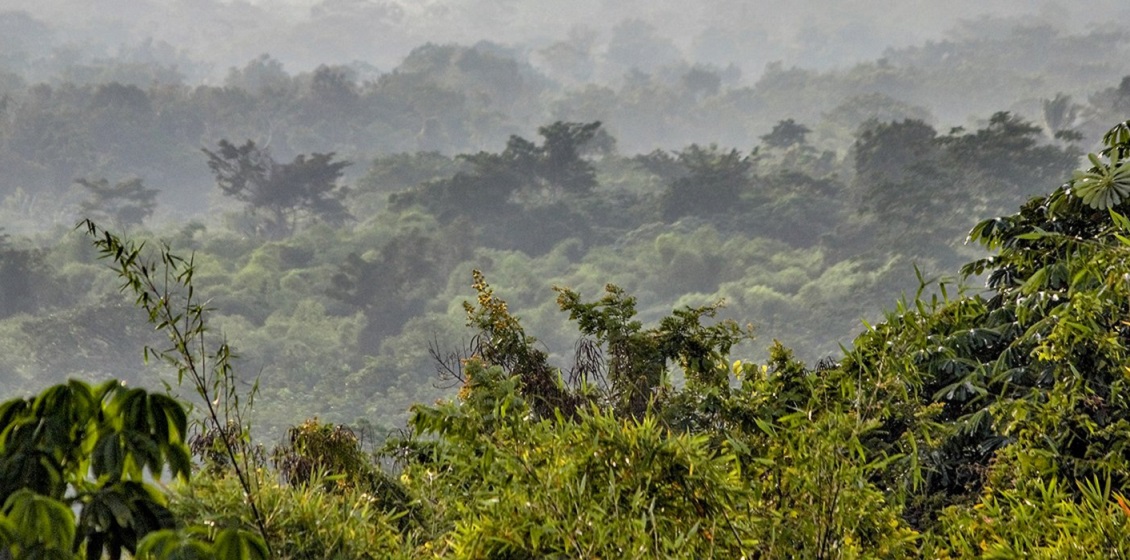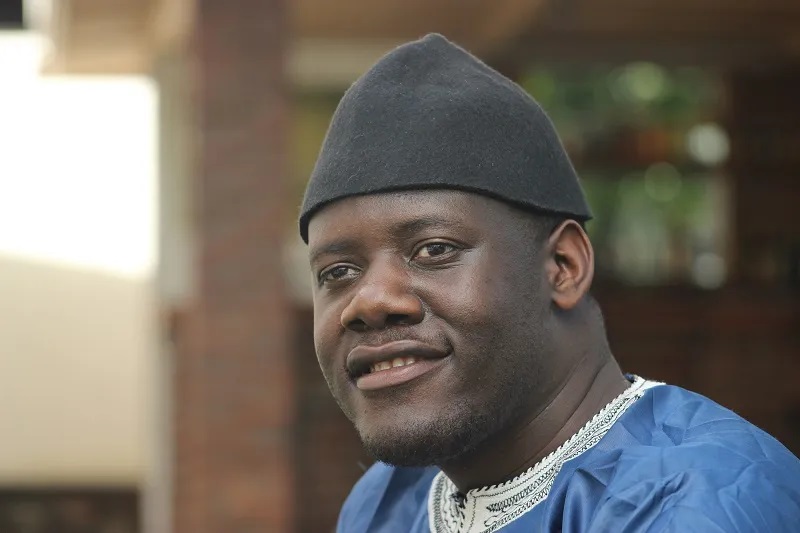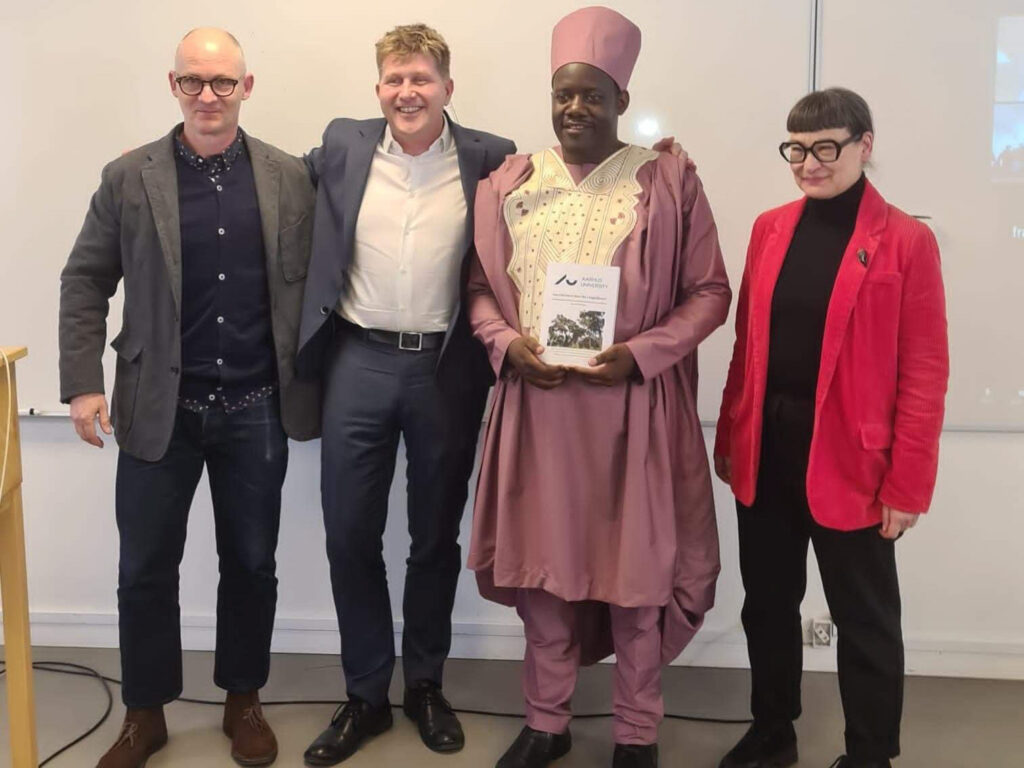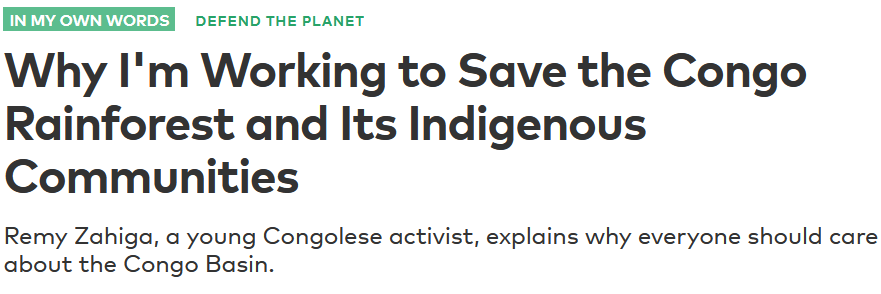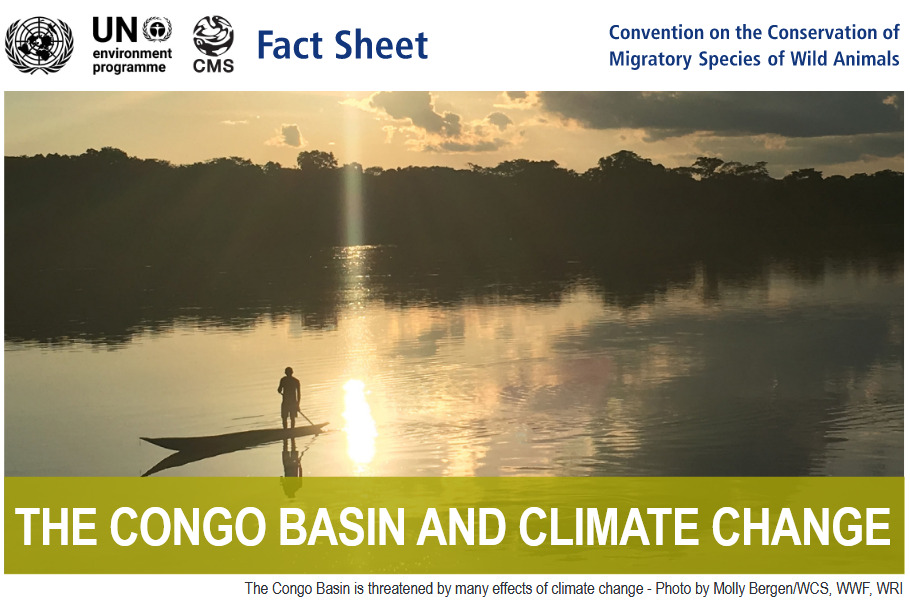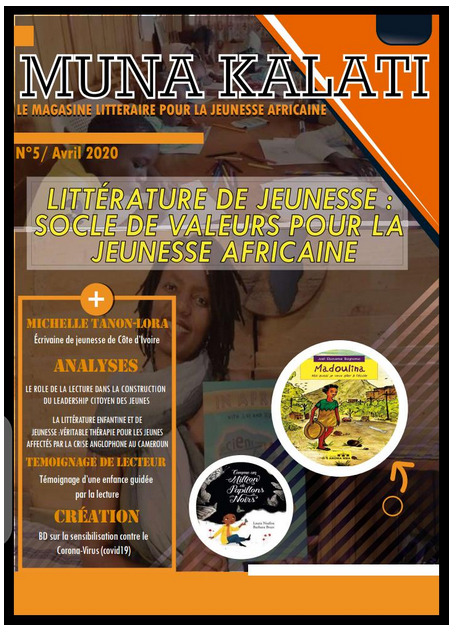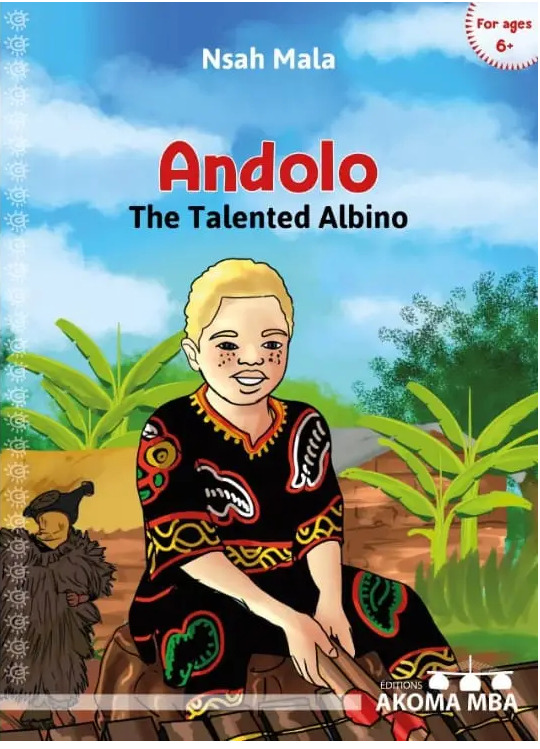The power of literature in human history has been seen many times and, in many places, demonstrating that a novel or a poem can inspire powerful actions and has the power to move the world. Literature can change people’s minds and hearts and make them feel connected to a greater cause.
But what is the effect of climate change in literature and can we, through it, aspire to be involved in climate action movements? How does it influence people and society in terms of thinking and feeling about nature and its connection to humankind?
Kenneth Toah Nsah, a Cameroonian known under his pen name Nsah Mala, is a literary scholar, writer, author, and poet, originally from the anglophone part of Cameroon, also known as the Mbesa kingdom. He recently graduated with his PhD in comparative literature at Aarhus University in Denmark. His dissertation examines novels, plays and poems in English and in French written by 10 authors from the Congo Basin, using the theoretical framework of ecocriticism and postcolonial ecocriticism applied around the Congo Basin.
By looking deeply into those texts, he aimed to find answers on the possibilities of how humanities, literature, and cultural studies can help with the climate crisis and environmental breakdown we are facing today. These 10 authors come from five out of six central countries of the Congo Basin. Cameroon, Gabon, Central African Republic, Congo Brazzaville and Congo Kinshasa, and Equatorial Guinea.
Kenneth says that the youth climate movement has come to be epitomized in the Western world for example by Greta Thunberg. But there are many young African people who are into youth climate activism, even prior to the rise of it in the western world. For example, in Uganda, Vanessa Nakate spearheaded the campaign to save Congo’s rainforest, which is facing massive deforestation.
Readings can inspire climate actions
“ , I’m looking at how those writings represent and respond to the issues of climate change and the environmental or ecological breakdown but as well as how those books think about biodiversity, sustainable development, the rights of indigenous people and youth activism for climate change.”
Those writings could offer a source of inspiration, motivation and hope to young people, through them they could understand that they have a role that they can play in the climate emergency. “Literature intervenes in so many challenges in the world throughout centuries and decades. There is no argument about how big a role literature and art have played. For example, Virginia
Woolf in the feminist movement has come to influence and shape people’s perceptions and mentalities about feminist issues. Literature has been very fundamental in our combating colonial fights, whether in India or Africa. In Africa literature was raising awareness, making people come back to themselves and realize their worth and their value.”
“What we can also see throughout the world is that writers who write on certain sensitive things like expanding political issues are usually arrested or disappeared. And why is that? It’s because politicians know the influence of literature on the lives of people. We don’t even need to measure it, quantify, or verify that in any other way. One proof is just the fact that dictators don’t like writers who write about political issues because it gives people knowledge and liberation,” Kenneth concludes.
Why we need to talk about the Congo Basin
“Talking about climate change, what comes to mind of most people is the Amazon. After the Amazon, they will tell you about Indonesia or other parts of southwestern or southeastern Asia, but the Congo Basin, won’t be known anywhere. So, I thought that it’s important through my research to help in bringing international visibility to a place that is very present, but also very invisible. Present through the things that are extracted from there, but very invisible when it comes to discourses, meetings and summits talking about climate mitigation.
The Congo Basin is present everywhere, for example the raw materials used to produce our laptop and phones are extracted there. But at the same time, we are talking about climate mitigation and nature protection”. The Congo Basin is one of the most important pieces of land we have on our planet. It is the second largest tropical rainforest sometimes called the second lungs of the earth because of its capacity to store carbon.
However, presently some researchers argue that the Congo Basin could be our primary carbon sink because of the large present deforestation of the Amazon rainforest. In 2017, researchers discovered the world’s largest peatlands are in Congo Basin 145,500 sq km – an area larger than England.
These peatlands hold almost 30% of the world’s tropical peatland carbon, which is the equivalent of 20 years of the fossil fuel emissions of the United States of America. That carbon has been building up in the Congo Basin’s peat for nearly 11,000 years. If the peatland complex was to be destroyed it would release billions of tons of carbon dioxide into the atmosphere.
The Congo Basin is not only important in terms of sequestration but also in terms of biodiversity, species of plants and animals, many of which are only found in the Congo Basin and nowhere else. There are approximately 10,000 species of tropical plants, and 30 per cent are unique to the region. The endangered wildlife includes forest elephants, chimpanzees, bonobos, and lowland and mountain gorillas.
Finally, the Congo Basin has been a place for humans for more than 50,000 years and now it provides food, fresh water and shelter to more than 75 million people and 150 distinct ethnic groups. The Baka people are among the most well-known representatives of an ancient hunter-gatherer lifestyle.
Green colonialism in Africa
Africa is often seen as the last agent on Earth, projected usually only as a place for wildlife and exotic animals, full of lions, elephants, and wilderness. This idea is almost always trying to zoom out of human beings and presenting Africa only as a pristine, pure, and virgin place. The reality, as Kenneth says, is that those national parks full of wilderness created by international, non-governmental organizations are forcibly and violently displacing indigenous and local people from places they have inhabited for years. He also points out that behind the terms and concepts of sustainable development and the aim to living harmoniously with nature is hidden neoliberal fatalism and the commodification of nature.
“When Western science and Western knowledge are applied in Africa and all over the world and also has been established as superior, that means it’s the only way to know the world and to study the world. But there are alternative economic systems – for instance indigenous people in the Congo Basin, such as the Batwa who do not own anything. They have economies that are built around harvesting and sharing they do not harvest for profit.” There are rich mineral resources in the Congo Basin, including crude oil, cobalt, diamond, and gold, which explains why there is an eternal war going on in parts of the Congo Basin, the Central African Republic, or the northeastern Democratic Republic of the Congo.
It is the western power and industrialized nations of the world that are using these raw materials whether it is lithium, uranium to make atomic bombs, or cobalt and coltan to make the phones and the laptops that we use in Europe or in America most of these things are coming from Africa”, Kenneth points out. “The theory that I use, postcolonial ecocriticism, is dealing with color societies in Africa that have gone through the painful experience of colonization and are still going through even today. My approach to literary scholarship is such that I want as much as possible to make my scholarship relevant to real-life problems. I think that I singularly emphasized that dimension, that because, for me, what is the point in reading poems about elephants or reading poems about pollution and reading poems about poaching if at the end of the day nothing will change? It is important to read novels and poems and to analyze them in ways that can potentially influence policy and influence action and make life better for humans and the environment.”
Anna Pokorná is a MSc student in Development Studies at Lund University, Sweden


